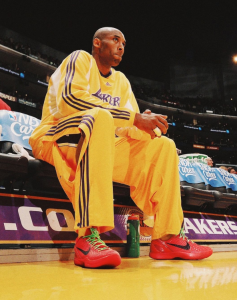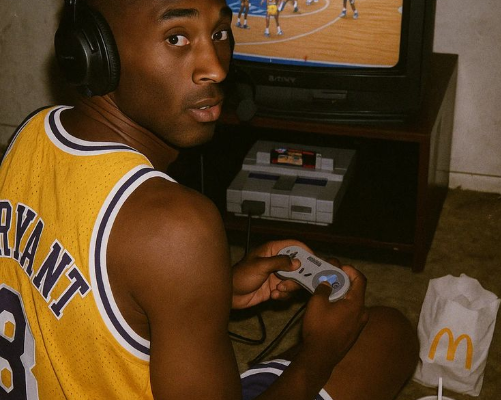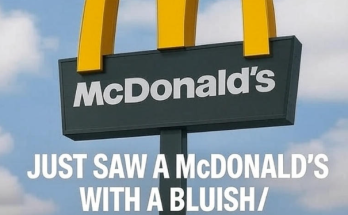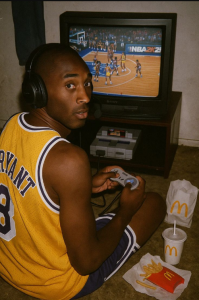 Basketball Changed After Kobe… But Did It Get Softer?
Basketball Changed After Kobe… But Did It Get Softer?
When Kobe Bryant stepped away from the game in 2016, the NBA didn’t just lose a superstar—it lost a symbol of a mindset, an identity, a culture. Kobe wasn’t simply a scorer or a champion; he was the embodiment of an era defined by grit, pressure, confrontation, and relentless competitiveness. His “Mamba Mentality” wasn’t just a slogan for shoes and posters. It was a code of conduct, one that demanded toughness and accountability every single day. And whether fans admit it or not, the league felt different the moment he walked off the court for the last time.
So, did the NBA actually get softer after Kobe left? Or did it simply evolve? The answer sits somewhere in a complicated intersection of culture, storytelling, rule changes, and the shifting personality of the modern athlete.
A League Transformed by New Rules
Long before Kobe retired, the NBA had already been moving toward a more offensive-friendly, fan-focused product. Hand-checking was eliminated, freedom of movement became a priority, and referees were instructed to protect shooters more aggressively. The result? Higher scoring, more open lanes, cleaner jump shots, and less physical punishment in the paint.
Kobe thrived in the era when defenders could body you up, grab your jersey, bump you off your spot, and dare you to complain about it. He built his game on battling through tough contact, earning his space, and taking on aggressive defenders head-on. The modern game, in comparison, rewards finesse and speed more than physical intensity.
It doesn’t necessarily mean today’s players are softer—they’re simply playing under a rulebook designed for a different type of basketball.
The Rise of the “Brand First” Athlete
One of the biggest cultural shifts since Kobe’s era has been the transformation of players into global brands.
In Kobe’s time, personal brand existed, but it didn’t dominate the narrative like it does now. Today’s athletes are hyper-conscious of image, sponsorships, social media engagement, and public perception. Conflict is often avoided. Arguments are considered “bad optics.” Trash talk is celebrated online but frequently punished on the court. And with every player having a direct public platform, controversies ignite faster than they ever did in the past.
Kobe embraced confrontation. He famously challenged teammates in practice, pushed rookies harder than most veterans, and didn’t care if someone disliked his approach. In today’s era, that same intensity might be labeled toxic or “problematic.”
The league hasn’t necessarily become softer—the culture surrounding it has.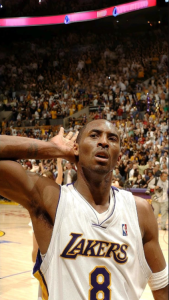
Load Management and the Death of the 82-Game Warrior
Kobe tore his Achilles and walked to the free-throw line for his two shots before limping off the court. He played through broken fingers, sprains, back injuries, and exhaustion. In his era, you suited up unless you physically couldn’t.
Today, players sit for rest, not injury.
Load management is now a strategic tool, not a rarity. It’s a product of analytics, sports science, and long-term investment—but for many fans, it feels like a lack of the toughness Kobe represented. Watching a star sit out a nationally televised game because of “precautionary rest” clashes with memories of Kobe playing 40-heavy-minute nights to drag his team into playoff contention.
The Disappearance of Rivalries
When Kobe played, rivalries mattered. They fueled the league.
Lakers vs. Celtics
Kobe vs. LeBron
Kobe vs. the Spurs dynasty
Kobe vs. anybody who thought they were better
Today, players train together in the offseason, team up in free agency, and call each other “brothers.” The competitive edge remains, but the hostility—the willingness to not get along—is fading. The intensity that once lived in the cracks between teams and players has softened into a more friendly, socially connected atmosphere.
Some call it progress. Others call it evidence the fire has dimmed.
The Shift in Leadership Style
Kobe led through example and confrontation. He demanded excellence and was unapologetically sharp in holding people accountable. His leadership style was built on pressure, not comfort.
Today’s stars often lead collaboratively. The approach is more nurturing, patient, and empathetic. Coaches and teams prioritize mental wellness, emotional intelligence, and relationship-building.
Neither approach is right or wrong—they’re simply different. But for those who grew up watching Kobe, today’s leadership approach may feel gentler, less aggressive, less… Kobe.
Skill Level vs. Toughness: A Different Kind of Hardness?
Here’s the twist: today’s NBA players are arguably the most skilled generation in history.
Shooting range, ball-handling, spacing IQ, off-ball movement, and athleticism are on another level.
You could argue the modern NBA is hard in a different way:
-
Defenses must guard 30 feet from the basket.
-
Big men shoot threes and handle the ball.
-
Guards play at insane speed and precision.
-
Players must excel in a pace-and-space environment Kobe never competed in.
So perhaps the NBA didn’t get softer—it just became less physical and more technical. It evolved into a league where skill is king and brute toughness is less rewarded.
But emotionally, culturally, and competitively, something was lost when Kobe left.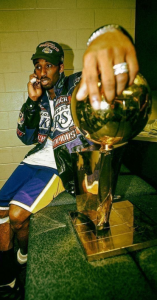
The Mamba Mentality Gap
Kobe was the last of a certain kind of player: the obsessed competitor.
Today, fewer players talk about winning at all costs. Many talk about balance, longevity, business ventures, and off-court success. All valid pursuits—but different from Kobe’s tunnel-visioned devotion to basketball excellence.
It’s not that players aren’t passionate. It’s that Kobe’s level of intensity is nearly impossible to replicate. He belonged to a generation shaped by Jordan, by physicality, by confrontation, by pride.
When fans say “the NBA got soft,” they aren’t just talking about fouls, rules, or rest days—they’re talking about the absence of a personality like Kobe’s.
So… Is the NBA Softer?
In some ways, yes.
-
Less physicality
-
More player-friendly rules
-
Load management
-
Brand-first culture
-
Friendlier rivalries
In other ways, no.
-
Skill levels are higher
-
Athleticism is greater
-
Pace is faster
-
Pressure on players is more intense
The truth is that the game didn’t get softer—it changed.
But Kobe Bryant represented a spirit that was rare even in his own time. And when he left the league, that spirit became even harder to find. So when fans say the NBA is softer, what they’re really saying is:
There will never be another Kobe.